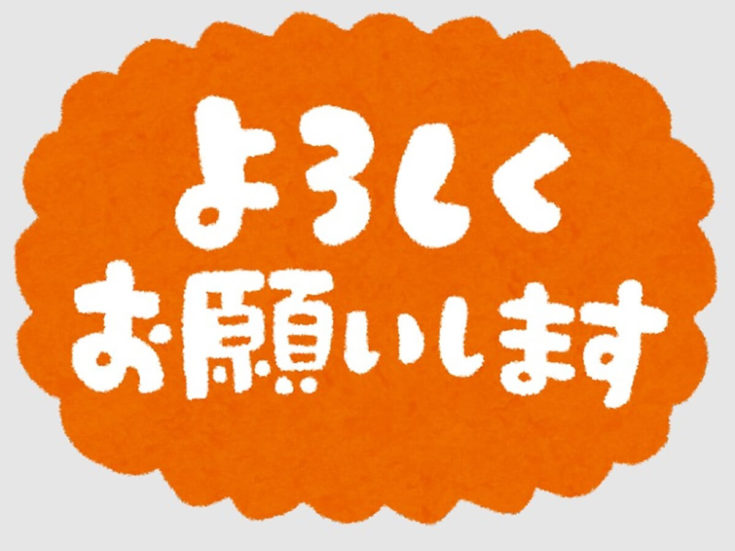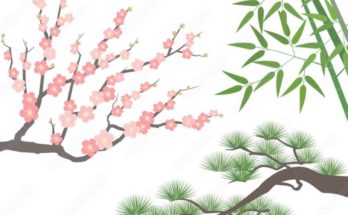If you’ve lived in Japan for even a short period, you’ve probably encountered the phrase “よろしくおねがいします (yoroshiku onegaishimasu).” Japanese people love this phrase, whether in work or private life. Grammatically, “よろしく(yoroshiku)” is a word attached when making a request or asking for a favor, while “お願い” (onegai) is a polite expression with the meaning of “hoping for something to be a certain way.”
So when do Japanese people use this phrase, and what does it mean to “hope for something to be a certain way”? Let’s delve into three main examples:
1) When meeting someone for the first time:
One of the most typical situations is at the end of self-introductions. For example, when someone new comes into your community, whether it’s at school, work, or in your neighborhood, they’ll say, “はじめまして。リサです。よろしくおねがいします(Hajimemashite. Lisa desu. Yoroshiku onegaishimasu). These can be translated into English as “Nice to meet you. I’m Lisa.”…and?? Actually, there’s no direct equivalent for “よろしくおねがいします(Yoroshiku onegaishimasu).” If we were to explain the meaning behind it, it could be something like, “I’m looking forward to getting to know you and working together in the future. I’m new here, so please feel free to guide me on anything.” The existing members would respond with “よろしくおねがいします (yoroshiku onegaishimasu),” as well conveying sentiments such as, “We’re pleased to welcome you aboard. Looking forward to getting to know each other.”
If everyone is meeting each other for the first time, they say “よろしくおねがいします(Yoroshiku onegaishimasu),” which includes the meaning “Let’s do our best together,” as well. Wow! So many meanings!!

2) When starting a meeting or event:
At the outset, the facilitator explains the meeting or event, ending it with “よろしくおねがいします(Yoroshiku onegaishimasu).” This phrase not only means “I’m looking forward to working with you,” but also includes the request, “Please take good care of everything.” Just like example 1, the other person responds with “よろしくおねがいします(Yoroshiku onegaishimasu),” indicating readiness for collaboration and asking for assistance if needed at the same time.
3) Closing a business email:
This phrase is frequently used to close business emails. It includes meanings like “Please take care of everything well,” “I’m looking forward to your reply,” “Thank you for your understanding,” or “Thank you in advance.” In business emails, it’s common to use “どうぞよろしくおねがいいたします(Doozo yoroshiku onegai itashimasu), ” which has the additional “どうぞ(doozo),” meaning “please,” before “よろしく(yoroshiku),” and the ending of the word was changed to the more polite “いたします(itashimasu).”
As a side note, contrasting with “どうぞよろしくお願いいたします” which is formal, in casual situations, we would simply say “よろしく(Yoroshiku)!”

So, what’s your take? Isn’t it a truly useful phrase? An important point when using it is not to use it for something that has already happened. Also, regardless of the situation, the underlying thoughts are looking forward to future relations and cooperation. So, observe in what situations Japanese people use this phrase, and feel free to use it yourself!
I live in Osaka. My dream is to live in Malta, an island country in the Mediterranean, after retirement.




